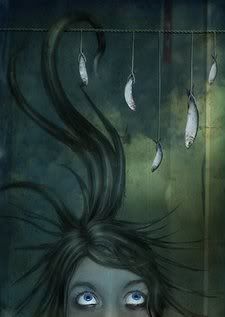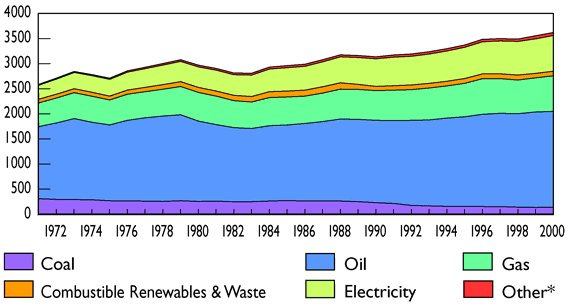
Our culture is a damaged culture. I remember hearing this from my social science teacher back in high school. And since I was a kid and didn't know any better, of course I believed her. I'd since forgotten that day, that lecture and this term "damaged culture." But I'd retained the idea, most likely subconsicously. So all these years I was walking around with this mantra drumming in my head:"We are a damged culture...we are a damaged culture....we are a damaged culture...."
Then this term was resurrected in my universe of consciousness when I took Anthropology 225 under Professor Dacayanan. There are as many definitions of culture as there are writers she said. Among those she mentioned, this is what stuck to my head. "Culture is a tool for survival." Meaning, a culture of a particular grouping evolves to ensure its survival. To ensure that the grouping as an entity continues on (and does not
disintegrate i.e. Yugoslavia or disappear entirely, err...Atlantis?).
Recently I've encountered this term again in Julsito's and Doc Emer's blogs. It irks me so when I see fellow Filipinos describe our culture as such. Can we say ours is a "damaged" culture? I don't think so. Why? Because:
1. It presupposes we had an "intact" culture beforehand. And something or someone along the way went and broke it. Pray tell, who was this breaker of cultures? Spaniards? Americans? Japanese? Ourselves? And before these invaders came? Was there an intact "Filipino" culture? Were our ancestors calling themselves Filipinos? No, they were calling themselves Ibanags, Ifugaos, Tausugs, Hiligaynons, etc. etc.
2. It presupposes that other cultures are undamaged. What, pray tell, is an intact culture? The Americans'? What with thousands of immigrants coming in every day bringing along with them their own unique cultures? What about Greeks back in the classical era? No, wait, they were killing each other then too. And so we can't really say theirs was an intact culture. Not to mention the fact that the Greeks have inherited much from the Egyptian culture, who in turn were influenced by the Mesopotamian cultures.
Can we say the Western Europeans have an intact culture then? No. Because Western European history goes well beyond basing their civilizations on Greeks. As I said, Greeks trace their roots to the Middle East.
The point here is, cultures evolve and whether the evolution is judged "good" or "bad" is subjective. A culture is a way of life. And if our culture today means under-the-table deals, graft and corruption, crab mentality, then there was a reason for this. This culture didn't appear out of nowhere. And it is not a natural state of being.
Government is corrupt. It is self-serving. It is inept. We all know this. But then the culture of government in the Philippines has never been concieved of and practiced otherwise. Government is a pact between a people and a State. The People give up their rights to State for the latter to protect the former. Provision of public services, ensuring peace and order etc. etc.
But then Government in the Philippines for over 350 years was never meant to be a pact between people and State. There was no people. And there was no State. Government was simply an institution to assure the smooth running of a Colony, to extract economic resources as efficiently as possible without rebellions from the subjugated populations and such.
And Government was also seen as the quickest way to move up the social ladder. And so, civil "servants" joined Government to enrich themselves and not to become purveyors public service.For three and a half centuries this was the culture of government.
What about such self-hatred from Filipinos themselves? Filipinos who are so self-critical? Filipinos who denounce their citizenship abroad? Filipinons who would rather the Philippines become an American state?
Well, if you'd been told over and over in the past that you and your culture is no good, inferior, backwards, why should you think otherwise? Eventually, you believe the mantra. And if you yourself use foreign standards with which to measure your achievements or shortcomings, what other conclusions will you end up with?
We should have a new mantra drummed in our cerebrums. We need a change in culture.
"We need a cultural revolution...we need a cultural revolution...we need a cultural revolution..."









